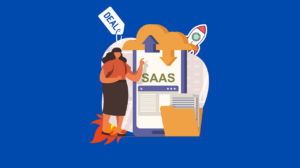As more and more people are using mobile handsets and devices to access the internet, it has led to a surge in the interest of mobile marketing over more conventional desktop/computer-directed internet marketing. When trying to decide which is right for your business, or whether you should be making use of both forms of marketing, it is important to understand some key distinctions between desktop and mobile marketing.
Below we will look at some of these major differences, allowing you to make a more informed decision when trying to choose which marketing strategy you should adopt for your business.
Building Apps Won’t Solve Every Pain Point or Problem Your Customers Face
Not all problems can be simply solved by creating an app. If you want to understand how you can create different user experiences for desktop and mobile users, you need to understand how customers use your information and engage with you or purchase from you. You may actually cause your potential clients and customers more frustration if you create an app just because apps are trendy and popular, and if they can find the exact same information on a page that has been designed for mobile devices.
Time Is Everything
Time is one of the most precious commodities human beings have. While people who predominately sit at desktops and make use of computers to engage online spend more time doing it; people who use mobile devices such as smart phones and tablets are on the move more and less sedentary.
Therefore, the time you have to make a good impression on an individual is relative to the size of the device they are using. If they are on a mobile phone for instance, your message needs to be more concise and to the point. As bounce rates and the attention spans of people are important, you need to break your message down to the core points for mobile users, while a more expansive and detailed message will suit desktop customers.
The Measurements for Mobile and PC are Different
Perhaps the biggest difference between desktop and mobile marketing is how they are measured. The standard for PCs and laptops is third-party cookies. However, these for the most part don’t work on mobile devices. For mobile devices therefore, brands use data from first-party cookies along with ID-Based and SDK or Software Development Kits. Cross-device graphs can help to connect the various activity across devices.
Desktop and Mobile Use Live Assistance Tools Differently
During the later stages of making large purchases, it is vital that you have live assistance tools in place. However, while co-browse and chat options are excellent for desktop users, as they can enable you to answer customer questions quickly before they make that final decision on whether to buy or not; chat is a little trickier on mobile devices. Customers are more likely to use a combination of co-browse and their phone to get the answers to their questions before they finalize the deal.
Target Audiences Vary From Device To Device
Your intended audience effects the type of marketing you should use. Think about who they are and how they generally absorb and engage with the content you are offering. Do they spend most of their time on their smart phone and that comparatively small screen or are they always at their computer staring at the large 18 inch monitor? When you have a good handle on who your customers are and what they use, you can better decide where to put your marketing focus.
The Level of Usability Differs
Although they are more accessible in some ways, customers who use mobile devices do not have same level of functionality as the ones that sit at a desktop on a computer. Mobile users do not benefit from a mouse. With regards to marketing, you need to find ways of collecting the same information from mobile users that you can from computer users, but with greater ease.





